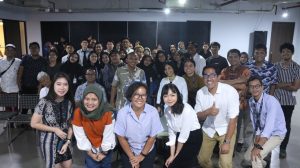
Anyone who’s been on a holiday knows the rush of excitement when boarding the plane to a new destination.
Indeed, the holiday industry is probably the one emerging economic area that brings the most joy — and the excitement comes with economic benefits for all.
The tourism industry doesn’t benefit just the traveler; it promises growth to the surrounding area . Tourism provides jobs for marginalized societies, including the most rural parts of the country. It also provides more room for women and young people to participate in economic activity. A report by UNWTO/ UNWomen reveals a significant percentage of women entrepreneurs in the field — 36% — compared to other sectors where only 22% of those involved are women.
Despite these benefits, the downside of tourism has been a contentious subject. Over consumption, waste problems and the exclusion of local communities from tourism activities – are just some of the woes wrought by unsustainable practices within the industry. Toursim has also been blamed for wreaking havoc on the environment with mass destruction of the ecosystem.
The SDG Talks Vol. 7 on 30 September 2019 brings to light this key issue , as we mark World Tourism Day on 27 September.
The theme of the talks is “Be a Responsible Traveler: Leave Nothing but Footprints” and it taps into the rising trend of youth travel. Part of the trend is the pervasive use of social media among the youth to promote their travels. Included among them are the ‘anti-mainstream’ kind who love venturing to offbeat spots such as secluded islands where access is often a challenge and public conveniences are scarce.
This leads one to question if the secluded islands can sustain their ecological balance in the face of an sharp increase in visitors.
According to UNDP Indonesia’s Small Grants Programme (SGP), the key to addressing this question lies in the waste management system involving the local communities.
“The common practice is that the locals usually become a passive audience. In Bali, we see that 30% of the trash produced comes from the tourism sector. It can be used an example of the need to protect and sustain while traveling,” says Meinar Sapto Walon from the SGP project, funded by the Global Environment Facility.
The SGP works in several different islands in Indonesia with vulnerabilities to climate change. The Project aims to equip locals with improved tools of resilience towards the rapid environmental changes occurring in the islands, such as in Nusa Penida-Bali, Wakatobi-Southeast Sulawesi, and Emau Island–East Nusa Tenggara.,
Miss Tourism Indonesia 2018, Gabriela Patricia Mandolang, says the youth of the current generation,commonly referred to as millennials, need to be made aware of the importance of responsible travel. “Millennials tend to be aware of the public’s attention, especially on their social media accounts. Thus, their record of the entire experience –prior to the trip, the trip itself and after their trip — can help promote good practices.”
There are other ways that youth can serve as a positive influence via their social media accounts.
Young influencer, Fathia Izzati, shares her tips. “I think young people are aware, for instance, about waste management. We need to be proactive and learn the dos and don’ts about the places we visit. As for me, I like creating videos while traveling and when I participate in activities, so people can learn — in a fun way– through the videos I post on my social media.”
Trinity Traveler– an established author who travels extensively as a hobby — also intones youth to be more mindful of their social media posts about destinations they visit. “There is no such thing as being the first person who posts or who visits the destination. Other people have been there too.”
Being the first to arrive is no longer a trend. It’s more about being a responsible traveler, who takes nothing but photographs, keeps noting but memories and leaves nothing but footprints


